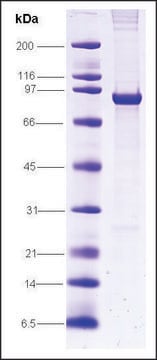C-12530
Human Skeletal Muscle Cells (SkMC)
500,000 cryopreserved cells
Synonym(s):
SkMC cells
About This Item
Recommended Products
biological source
human skeletal muscle
packaging
pkg of 500,000 cells
morphology
(skeletal muscle)
technique(s)
cell culture | mammalian: suitable
shipped in
dry ice
storage temp.
−196°C
General description
Cell Line Origin
Application
Quality
Warning
Subculture Routine
Other Notes
Disclaimer
Storage Class Code
12 - Non Combustible Liquids
WGK
WGK 1
Flash Point(F)
Not applicable
Flash Point(C)
Not applicable
Choose from one of the most recent versions:
Certificates of Analysis (COA)
Sorry, we don't have COAs for this product available online at this time.
If you need assistance, please contact Customer Support.
Already Own This Product?
Find documentation for the products that you have recently purchased in the Document Library.
Articles
Primary human skeletal muscle cells and culture medium optimized for the in vitro cultivation and differentiation of primary human skeletal muscle cells. Protocols for handling, cell passaging, media, and product use.
Yeast plasmid selection: Utilizes auxotrophic yeast strains for plasmid selection, enabling growth on synthetic media for better yield.
Yeast plasmid selection: Utilizes auxotrophic yeast strains for plasmid selection, enabling growth on synthetic media for better yield.
Yeast plasmid selection: Utilizes auxotrophic yeast strains for plasmid selection, enabling growth on synthetic media for better yield.
Our team of scientists has experience in all areas of research including Life Science, Material Science, Chemical Synthesis, Chromatography, Analytical and many others.
Contact Technical Service





